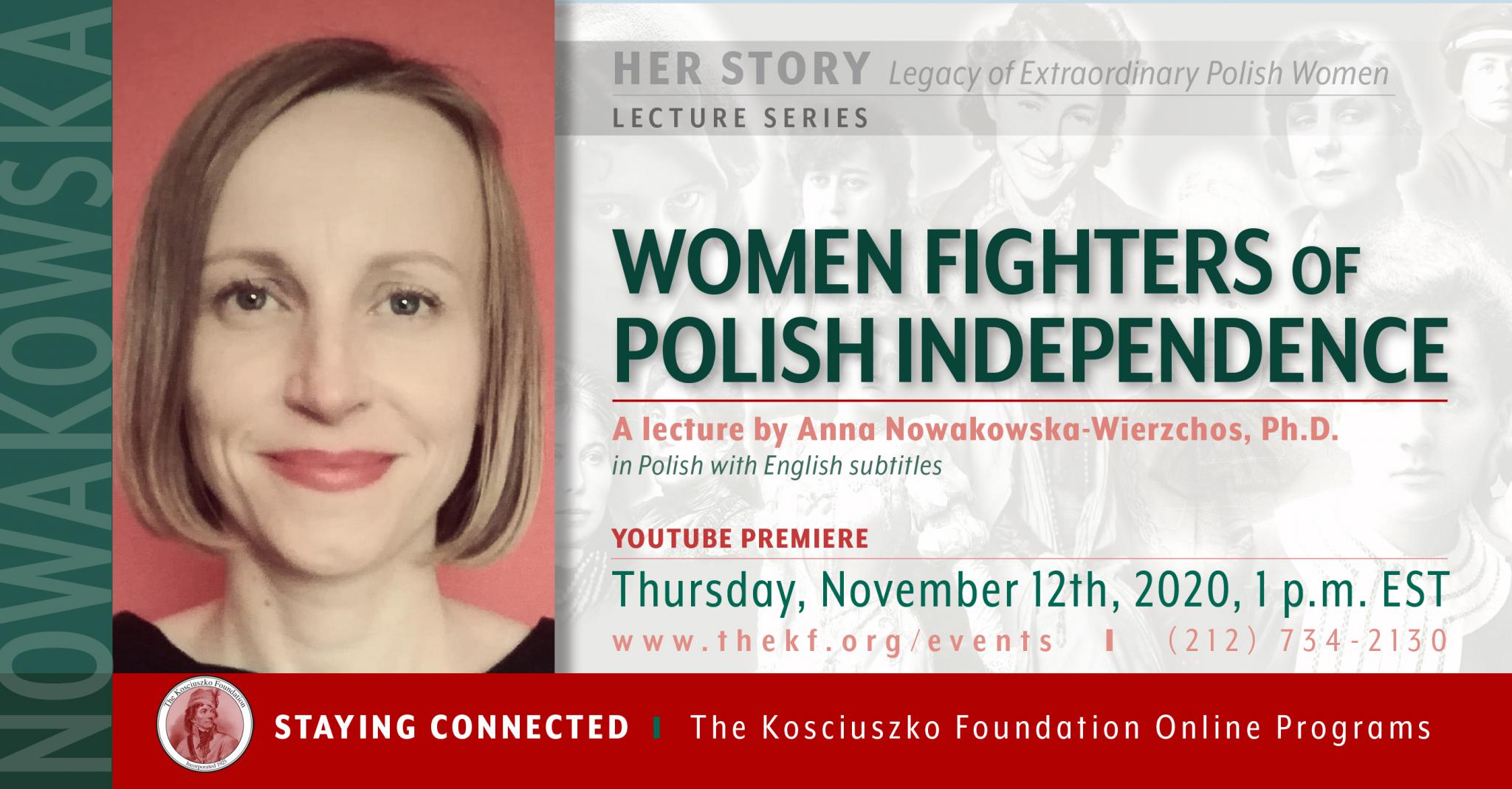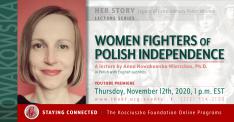
KF Online Programs
Women Fighters of Polish Independence - a talk by Anna Nowakowska-Wierzchos, Ph.D.
Thursday, November 12, 2020, at 1:00pm
The long 19th and the beginning of the 20th centuries constitute a struggle of Polish men and women for regaining its independent state, which was interrupted by moments of relief. More and more women became involved in each subsequent uprising, taking a step towards a free homeland and expanding on their fields of social, political, and military activities. Emilia Plater, the legendary participant of the November Uprising, had not had many followers yet who would fight with weapons in the next insurrection. Still, women's involvement in distribution, intelligence activity, hiding insurgents, and providing medical aid was considerable and recognized by the tsarist authorities, which resulted in taking repression measures against them. Many women who supported the uprising constituted an impulse for further activity – they established schools, modernized the countryside, and disseminated the patriotic and political literature. Their female pupils, the first female students, had a lot more courage to engage in political and conspiracy life by participating in the meetings of political parties or militant groups. In the next generation, there appeared women who felt that all of this was not enough. They believed that it was time to go to the front with a rifle to fight.
YOUTUBE PREMIERE: NOVEMBER 12, 2020, 1:00 PM EST
Anna Nowakowska-Wierzchoś – 19th- and 20th-century Polish social history, women's and gender history; assistant professor at the Tadeusz Manteuffel Institute of History, Polish Academy of Science; member of the 'Łucja Charewiczowa' Seminar in History of Women and Gender affiliated to Institute of History, Polish Academy of Sciences.
The Author of the book: Wanda Gertz. Opowieść o kobiecie żołnierzu [Wanda Gertz. A story about a woman-soldier] (Kraków 2009)

